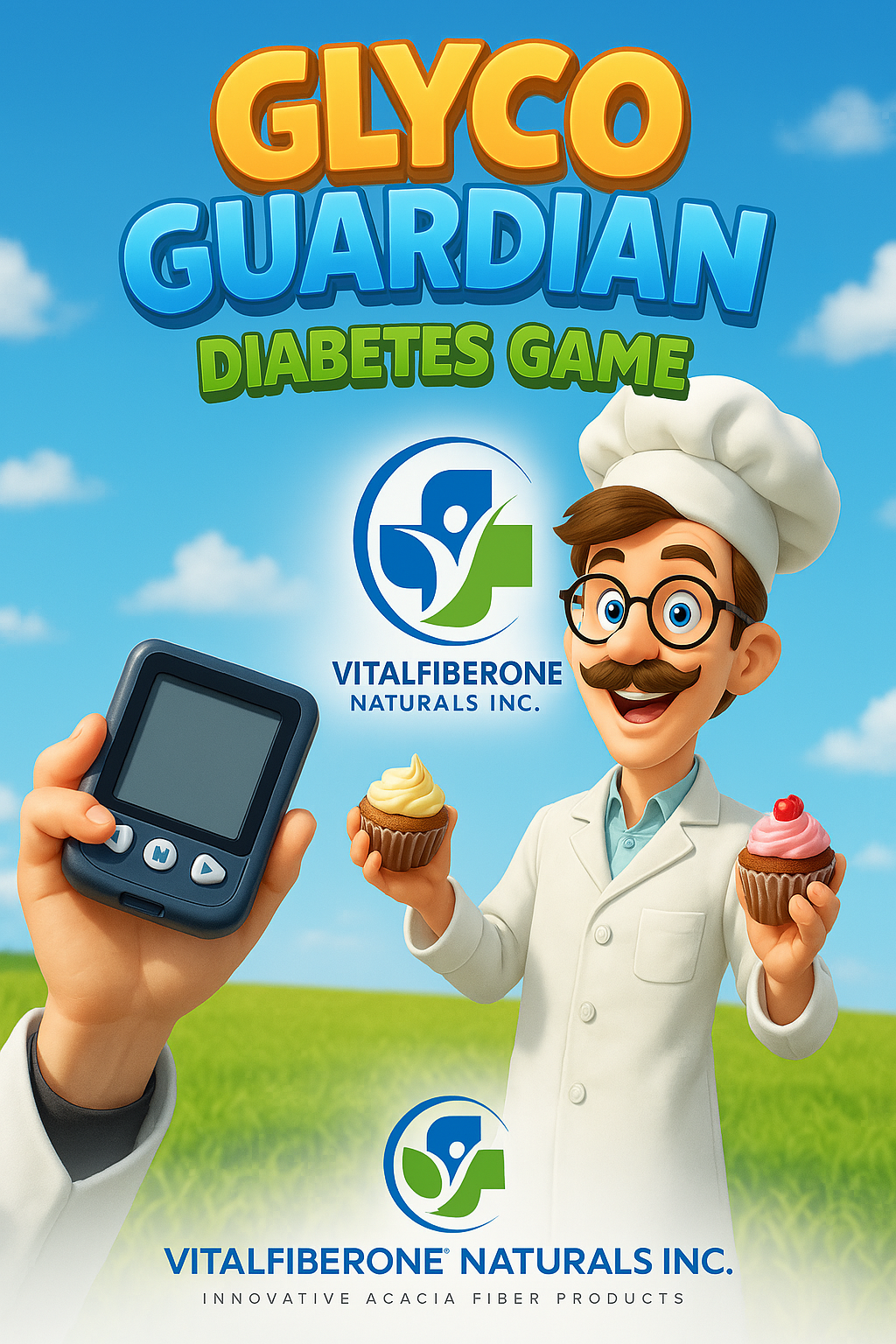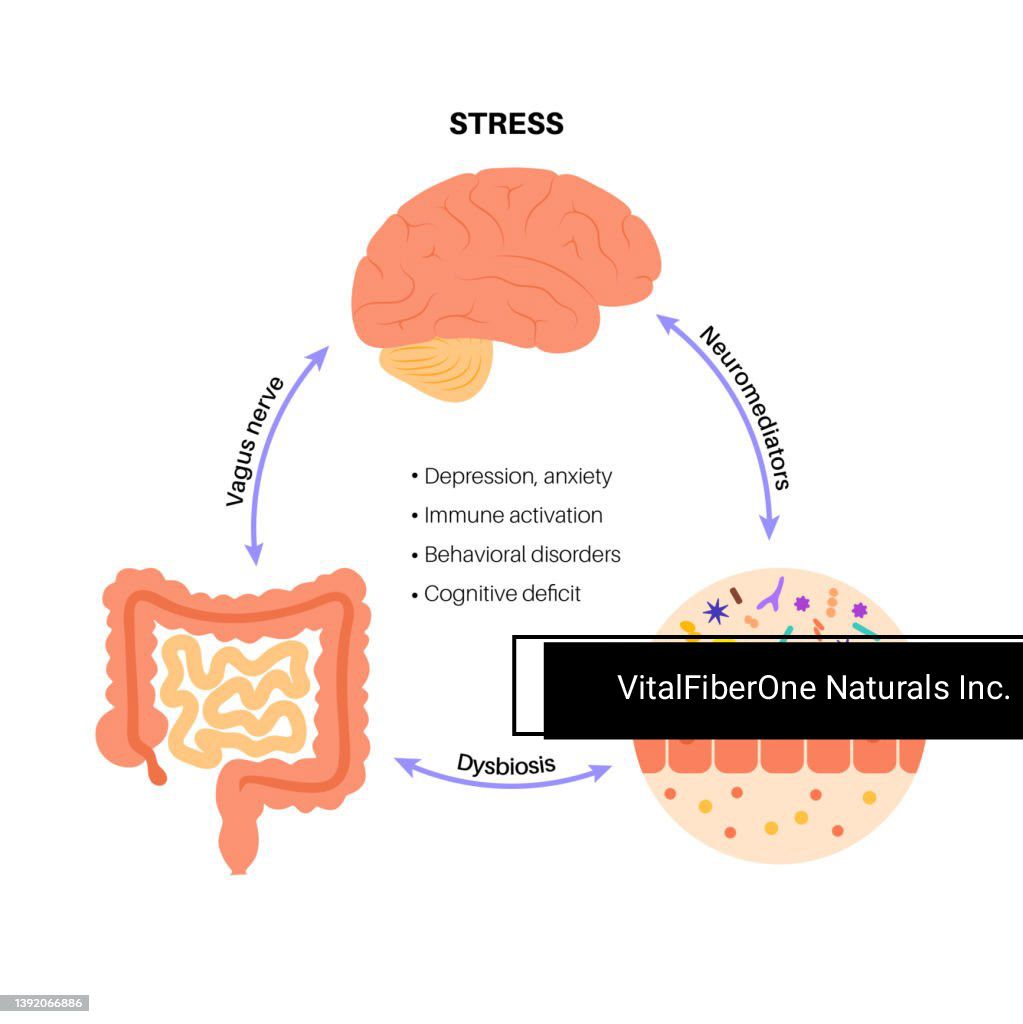Quick Relief for Irritable Bowel Syndrome (IBS) Symptoms in Under 10 Minutes
VitalFiberOne Naturals Inc. • May 16, 2024
Quick Relief for Irritable Bowel Syndrome (IBS) Symptoms in Under 10 Minutes: Practical Tips for Immediate Comfort

Quick Relief for Irritable Bowel Syndrome (IBS) Symptoms in Under 10 Minutes
Introduction
Living with Irritable Bowel Syndrome (IBS) can be challenging, with unpredictable symptoms that can disrupt daily life. While long-term management strategies are crucial, sometimes immediate relief is necessary to handle sudden flare-ups. This guide provides practical tips and techniques that can help alleviate IBS symptoms in under 10 minutes, ensuring you're prepared for those urgent moments.
Brief Overview of Irritable Bowel Syndrome (IBS)
Irritable Bowel Syndrome is a common gastrointestinal disorder characterized by chronic abdominal pain, bloating, and altered bowel habits, including diarrhea and constipation. It affects millions of people worldwide and can significantly impact the quality of life.
Disclaimer: Realistic Outcomes
It's important to understand that while these quick relief strategies can help manage symptoms, they are not a cure for IBS. The effectiveness of these techniques varies from person to person. Always consult with a healthcare provider for personalized advice and long-term management plans.
What is Irritable Bowel Syndrome (IBS)?
Definition and Common Symptoms
IBS is a functional gastrointestinal disorder, meaning it's related to problems with how the gut works, rather than structural issues. Common symptoms include:
Abdominal pain or cramping
Bloating and gas
Diarrhea, constipation, or alternating between both
Mucus in the stool
Urgency to have a bowel movement
Causes and Triggers of IBS
The exact cause of IBS is unknown, but several factors can contribute to its development:
Genetics: Family history of IBS
Gut-Brain Axis: Disruption in communication between the brain and the digestive tract
Gut Microbiota: Imbalance of bacteria in the gut
Infections: Gastrointestinal infections and small intestinal bacterial overgrowth (SIBO)
Diet and Food Sensitivities: Sensitivity to certain foods and beverages
Stress: High levels of stress and anxiety
Immediate Relief Strategies for IBS
Breathing Exercises and Relaxation Techniques
Stress is a significant trigger for IBS symptoms. Practicing breathing exercises and relaxation techniques can help reduce stress levels quickly.
Deep Breathing: Sit comfortably, inhale deeply through your nose for a count of four, hold for four counts, and exhale slowly through your mouth for another four counts. Repeat for a few minutes.
Progressive Muscle Relaxation: Tense and then slowly release each muscle group, starting from your toes and working up to your head.
Visualization: Close your eyes and imagine a peaceful scene, focusing on the details to divert your mind from the discomfort.
Use of Heat Therapy
Applying heat can help relax the muscles in your abdomen and ease pain.
Heating Pads: Place a heating pad on your abdomen for 10-15 minutes. Ensure the pad is not too hot to avoid burns.
Warm Bath: A warm bath can provide similar relief by relaxing the muscles and reducing stress.
Dietary Quick Fixes
Suitable Snacks or Drinks
Certain foods and drinks can help alleviate IBS symptoms quickly.
Ginger Tea: Known for its anti-inflammatory properties, ginger tea can help soothe the digestive tract.
Peppermint Tea: Peppermint has antispasmodic properties that can help relax the muscles of the gastrointestinal tract.
Low-FODMAP Snacks: Small portions of low-FODMAP fruits like bananas or blueberries can be gentle on the stomach.
Foods and Beverages to Avoid
During an IBS flare-up, certain foods and drinks should be avoided to prevent exacerbating symptoms.
High-FODMAP Foods: These include certain fruits (apples, pears), vegetables (onions, garlic), and dairy products.
Caffeinated Beverages: Coffee and other caffeinated drinks can stimulate the intestines and worsen symptoms.
Carbonated Drinks: These can increase bloating and gas.
Over-the-Counter Medications
Recommended OTC Medications
Over-the-counter (OTC) medications can provide quick relief for IBS symptoms.
Antispasmodics: Medications like hyoscine can help reduce abdominal cramping.
Anti-Diarrheals: Loperamide can be effective in controlling diarrhea.
Fiber Supplements: For those with constipation-predominant IBS, soluble fiber supplements like psyllium can be helpful.
How to Safely Use These Medications
It's essential to follow the dosage instructions on the packaging and consult with a healthcare provider if you have any concerns or if symptoms persist.
When to Use Peppermint Oil
Benefits of Peppermint Oil
Peppermint oil is known for its antispasmodic properties, which can help relieve IBS symptoms such as abdominal pain and bloating.
How to Properly and Safely Use Peppermint Oil
Capsules: Enteric-coated peppermint oil capsules can be taken before meals to reduce symptoms.
Topical Application: Diluted peppermint oil can be massaged onto the abdomen for relief.
Caution: Always follow the recommended dosage and consult with a healthcare provider before using peppermint oil, especially if you have other health conditions.
Importance of Hydration
How Staying Hydrated Helps Manage IBS Symptoms
Proper hydration is crucial for digestive health and can help prevent constipation, a common symptom of IBS.
Quick Hydration Tips
Water: Drink small sips of water throughout the day.
Electrolyte Solutions: These can help maintain hydration and electrolyte balance, especially during diarrhea episodes.
Avoid Sugary Drinks: Sugary drinks can exacerbate IBS symptoms.
Physical Activity and IBS
Simple, Quick Exercises
Gentle physical activities can help stimulate digestion and relieve symptoms.
Walking: A short, brisk walk can aid digestion and reduce bloating.
Yoga: Certain yoga poses, like the Child's Pose or Cat-Cow stretch, can help relieve abdominal discomfort.
Caution on Strenuous Activities
During an IBS flare-up, avoid strenuous activities that can increase stress and exacerbate symptoms.
Stress Management Techniques
Quick Stress-Relief Techniques
Managing stress effectively can help reduce the severity of IBS symptoms.
Mindfulness Meditation: Spend a few minutes focusing on your breath and being present in the moment.
Guided Imagery: Listen to a guided meditation or visualization to help calm the mind.
The Role of Mindfulness and Meditation
Regular practice of mindfulness and meditation can improve overall well-being and reduce the frequency and severity of IBS flare-ups.
Knowing Your Triggers
Importance of Understanding and Avoiding Personal IBS Triggers
Identifying and avoiding triggers is key to managing IBS effectively.
How to Quickly Identify and Respond to Triggers
Food Diary: Keep a diary of what you eat and how it affects your symptoms.
Symptom Tracker: Use an app or journal to track symptoms and identify patterns.
Alternative Therapies
Brief Overview of Suitable Alternative Therapies
Alternative therapies can provide additional relief for IBS symptoms.
Acupuncture: Can help reduce pain and improve gut function.
Hypnotherapy: Gut-directed hypnotherapy has been shown to be effective in managing IBS symptoms.
When and How to Seek These Treatments
Consult with a healthcare provider to determine if alternative therapies are suitable for you and seek qualified practitioners for these treatments.
When to See a Doctor
Signs That Your Symptoms Need Medical Attention
Certain symptoms require prompt medical attention:
Unexplained weight loss
Severe or persistent pain
Blood in the stool
Unusual changes in bowel habits
How to Prepare for a Doctor’s Visit Regarding IBS
Symptom Log: Keep a detailed log of your symptoms and triggers.
Questions List: Prepare a list of questions and concerns to discuss with your doctor.
Conclusion
Recap of the Quick Relief Strategies
Quick relief strategies for IBS include breathing exercises, heat therapy, dietary adjustments, OTC medications, peppermint oil, staying hydrated, gentle physical activity, stress management, and understanding personal triggers.
Encouragement to Seek Long-Term Management Strategies and Professional Advice
While these techniques can provide immediate relief, it's important to seek long-term management strategies and professional advice for a comprehensive approach to managing IBS.
For personalized advice and a comprehensive approach to managing IBS, consult with a healthcare provider. Explore more resources on our website for in-depth information on IBS management.
Links:
https://www.vitalfiberone.com/gut-directed-hypnotherapy-a-breakthrough-for-ibs-2024

Learn how to manage diabetes with ease using VitalFiberOne™, a revolutionary solution that makes living with diabetes simple and stress-free. In this blog, we'll introduce you to a fun and interactive world education game that teaches you how to control your blood sugar levels, improve your overall health, and live a happy life with diabetes. Discover the benefits of VitalFiberOne™ and how it can help you take charge of your diabetes management.

Take control of your diabetes management with Glyco Guardian, the ultimate solution for a healthier you! In this blog, we'll show you how to make managing your diabetes easy, convenient, and most importantly, FREE! With Glyco Guardian, you'll have access to a comprehensive platform that helps you track your blood sugar levels, monitor your diet, and stay on top of your medication. Say goodbye to tedious paperwork and hello to a more streamlined approach to managing your diabetes. Join us as we explore the benefits of Glyco Guardian and discover how it can make a significant difference in your life.

Are you tired of feeling sluggish and run down? Discover the secret to boosting your energy levels with Acacia Fiber! This natural superfood is packed with nutrients and prebiotics that help support a healthy gut, increase energy production, and even aid in weight management. In this article, we'll dive into the amazing benefits of Acacia Fiber and how you can incorporate it into your daily routine to feel more energized, focused, and vibrant. Say goodbye to fatigue and hello to a more energetic you!










